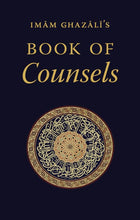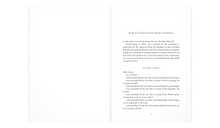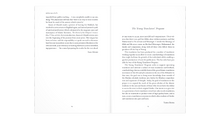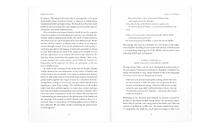Imam Ghazali's Book of Counsels (From Ahadith al-Qudsiyyah)
- Regular price
- £6.99
- Sale price
- £6.99 Sale
The text before us by Imam Ghazali is a book of Mawa'iz, Counsels to good or against evil, embodying precisely the sort of hadiths the scholars support implementing despite the grade of their narration.
Abu Ḥamid al-Ghazali, in his Book of Counsels, compiles powerful spiritual lessons and reminders, weaving hadith into direct speech and presenting it to the reader. This is a book that is intended to stir the heart to submission and mindfulness of Allah. This translation has sought to retain the literary aspects of this collection while also applying an attentive engagement with the hadith employed within.
Content
- Introduction
- Al-Mawa'iz Fi al-Ahadith al-Qudsiyyah
- A Brief Overview of Imam al-Ghazali's illustrious Career
- The Young Translators' Program
- Important Observations on The Referencing
- Definition of Hadith Qudsi
- Varying Format of Hadith Qudsi
- On Ghazali's Counsels
- The Book of Counsels
- Bibliography
About The Author
Abu Hamid Muhammad, famous in the world of learning as al-Ghazali was born in 450 AH (1058 A.D). in Persia . He graduated from the Nizamia Madressa at Nishapur, with distinction, a very famous educational institution in Nishapur. Later he was appointed as a teacher at the Nizamia College in Baghdad, where he proved very successful in imparting knowledge to the scholars under his care. This valuable gift of sustaining interest of his pupils and passing on his knowledge to them made him so famous that students from all parts of the country flocked to study under him.
Imam al-Ghazali was fondly referred to as the "Hujjat-ul-lslam", Proof of Islam, He is honoured as a scholar and a saint by learned men all over the world.
Al-Ghazali is generally acclaimed as the most influential thinker of the Classical period of Islam, in his autobiography The Deliverance from Error, the Imam describes his education and his intellectual crisis, which left him so paralysed by doubt that he he gave up his academic pursuits and worldly interests and became a wandering ascetic. This was a process (period) of mystical transformation.
Later, he resumed his teaching duties, but again left these. An era of solitary life, devoted to contemplation and writing then ensued, which led to the authorship of a number of everlasting books (Many of which have been translated in English). Imam al-Ghazali's life was spent in self-sacrificing service of God and his fellowmen. He left behind him a fine example for all men to follow. He died in 505 AH
Profits go towards supporting the educational and community projects at the Guidance Hub.







